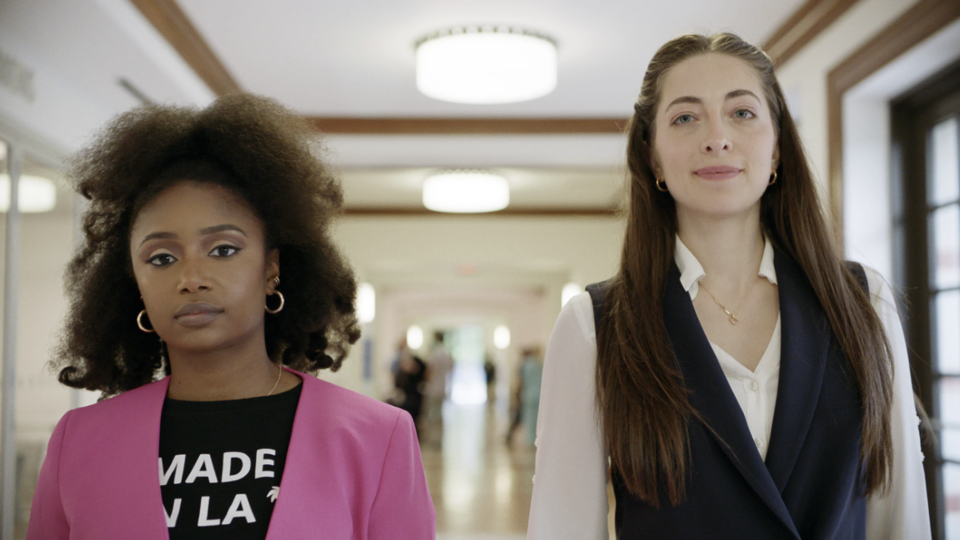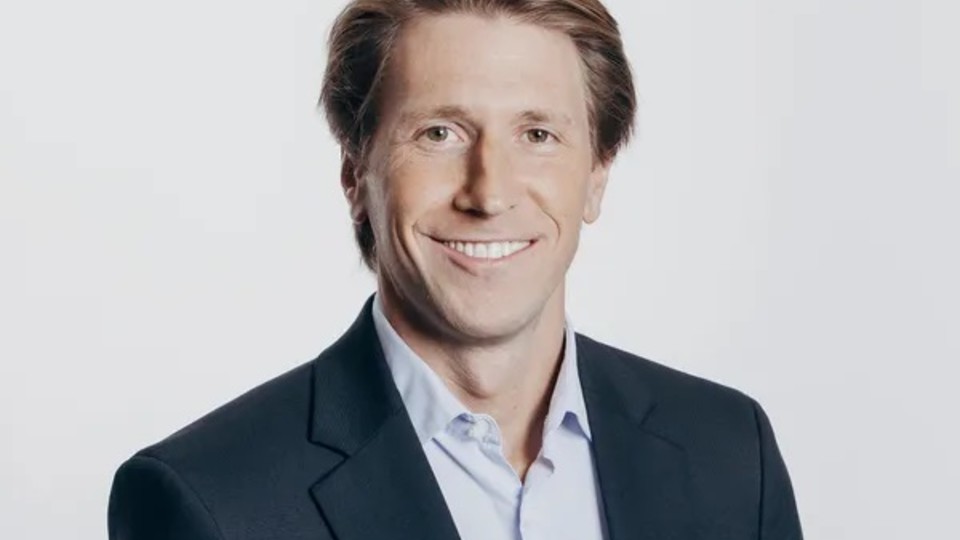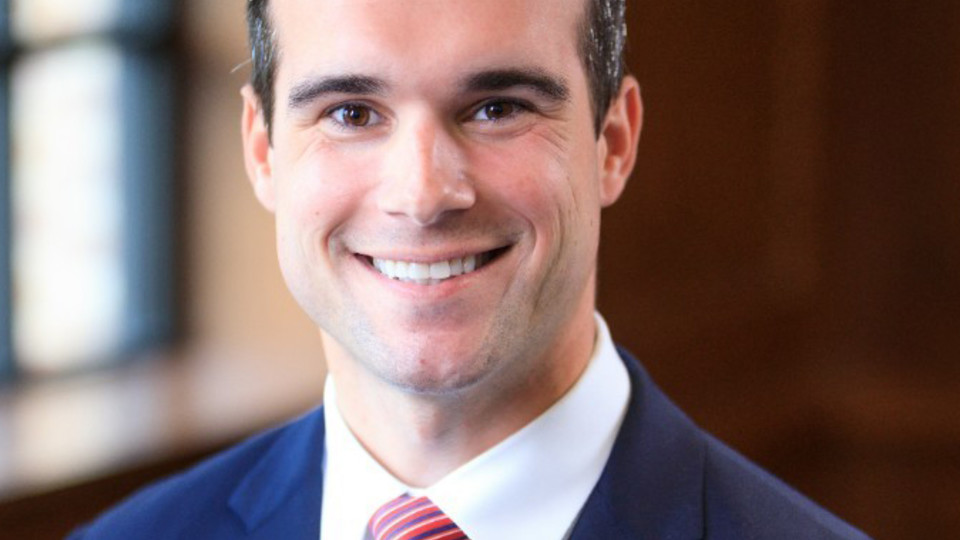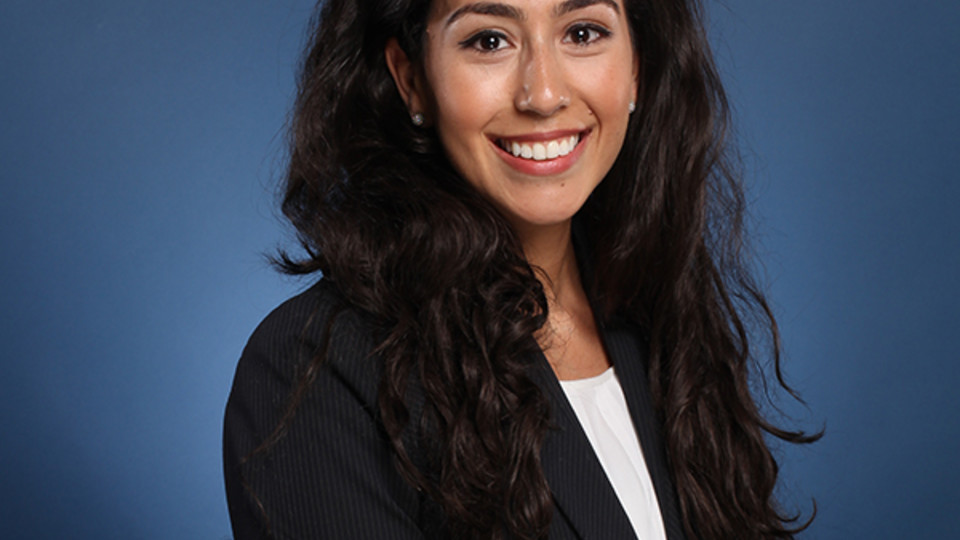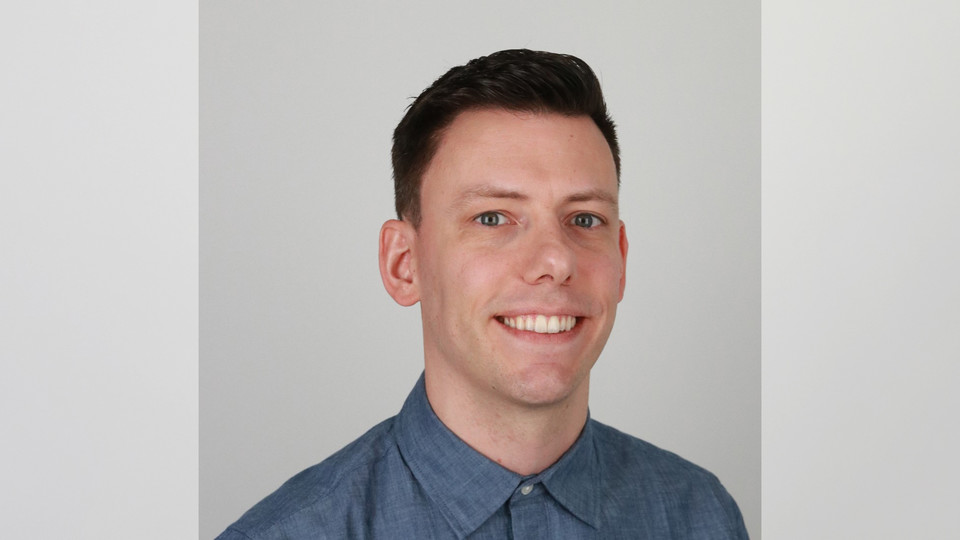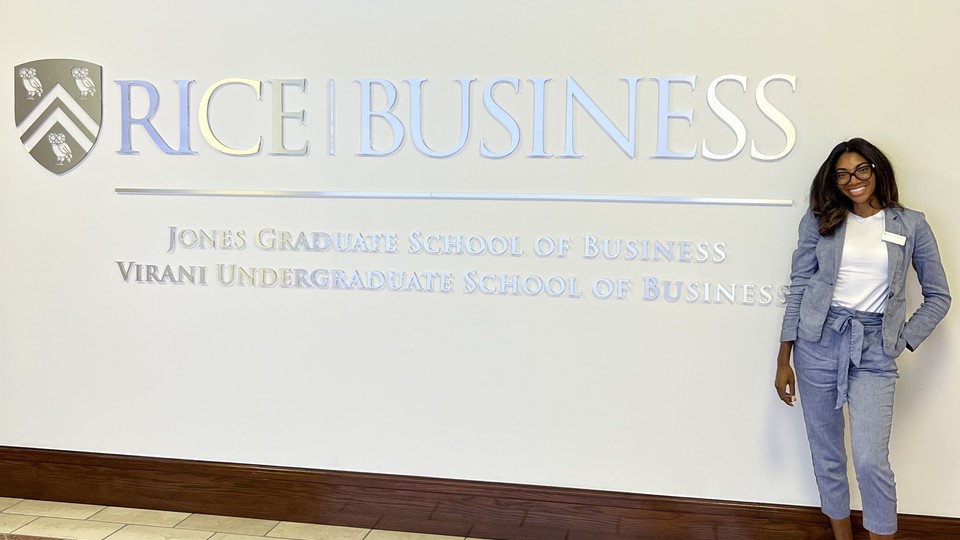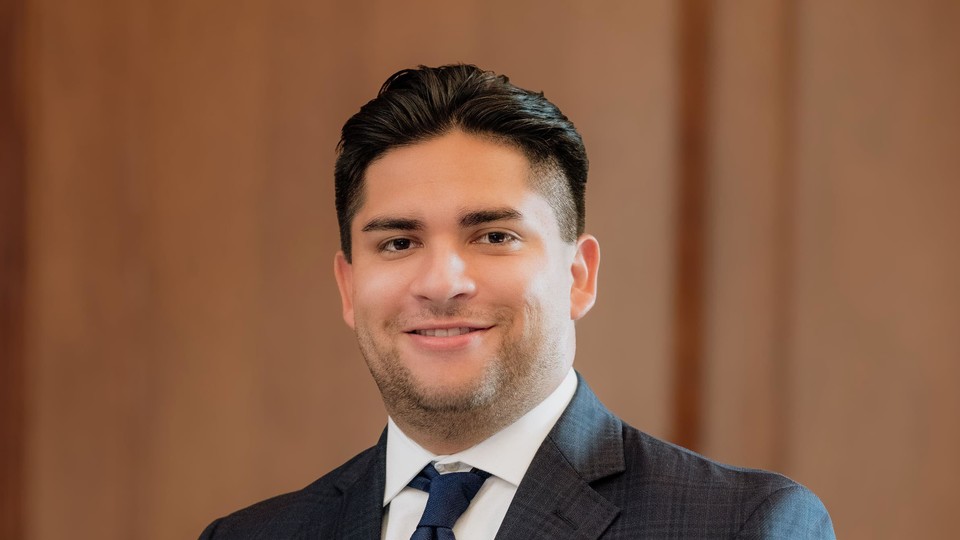His Passion for ALS Research Starts at Home feat. Daniel Barvin ’18
Season 3, Episode 20
In this episode recorded at Rice Alliance in McNair Hall, Daniel chats with host Maya Pomroy ’22 about his journey, his passion for ALS research, and building community and support for others affected by this disease.
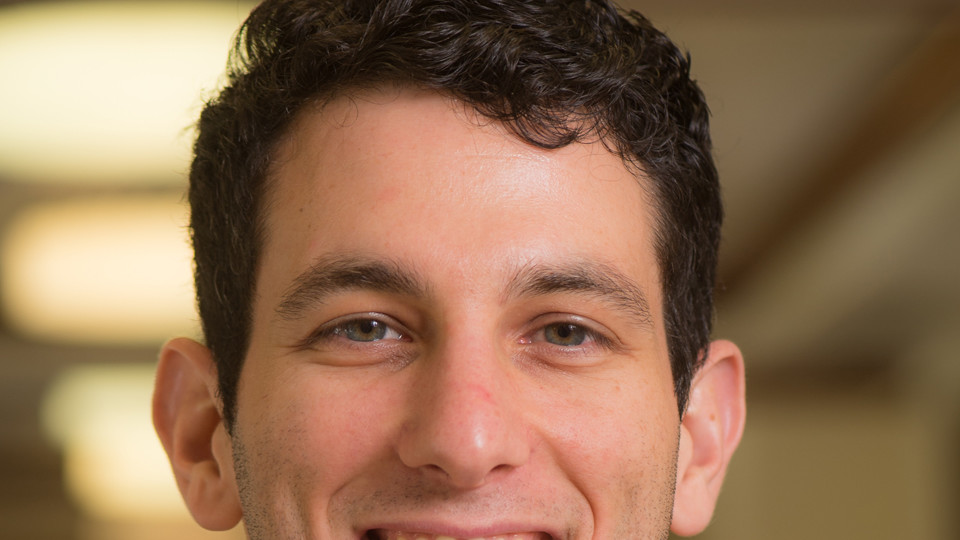
Owl Have You Know
Season 3, Episode 20
Tune into the first of our recordings from this year’s alumni reunion!
Daniel Barvin earned an MBA from Rice Business in 2018 and, in December of the same year, tested positive for an ALS gene mutation. He shares how this life-changing news shifted his perspective and career trajectory, inspiring him to pivot from financial advising to a career in patient advocacy. He is now the VP of operations and patient advocacy at Coya Therapeutics, driving progress in treating neurodegenerative diseases and fighting to end ALS. We’re grateful to Daniel for sharing his story.
Watch
Listen
Subscribe to Owl Have You Know on Apple Podcasts, Spotify, Youtube or wherever you find your favorite podcasts.
Episode Transcript
-
[00:00] Intro: Welcome to Owl Have You Know, a podcast from Rice Business. This episode is part of our Pivot Series, where guests share stories of transformation in their lives and careers.
[00:12] Maya: Thank you so much for being with us today on this Owl Have You Know. It's a special Owl Have You Know because it is Reunion Weekend, and we have some phenomenal guests with us today that we, kind of, snagged out of partio to talk to us. Hopefully, you've been able to have a drink or two before you've, like, walked in here to the Rice Alliance.
[00:31] Daniel: We've been having a good time. And hopefully, I'll keep my wits about me.
[00:35] Maya: Okay. All right, promise?
[00:36] Daniel: Promise.
[00:37] Maya: All right. Well, so our guest today is Daniel Barvin. You are a professional MBA from the class of 2018. Welcome back.
[00:43] Daniel: Thank you. It's great to be here.
[00:45] Maya: It's been five years.
[00:46] Daniel: You know, I parked in the parking garage and I said, "Oh, my God, it feels like an eternity since I've been back."
[00:52] Maya: Really, the parking garage told you this?
[00:53] Daniel: Well, you know, the, the ambiance of the entire, you know, Rice University and Rice Business did. But it feels great to be back amongst this community and sharing in this innovative discussion of thought. Just I missed being a part of this school.
[01:08] Maya: Well, you're always welcome to come back. I mean, you do live in Houston, right?
[01:11] Daniel: I do.
[01:12] Maya: So, you can always just, you know, pop back in whenever you want to.
[01:15] Daniel: I'm starting to do that.
[01:16] Maya: And whenever, you know, whenever the, the, you can always walk on campus and, you know, come and see some familiar faces. You were just telling me that you, you and Al Danto are, are very close. He was probably one of your favorite professors, like he was for me as well.
[01:29] Daniel: Definitely was.
[01:30] Maya: Also, he's, he's got a phenomenal story of, of what's happened to him in the last couple of years. And you have a phenomenal story as well. So, so, you started out in wealth management. That was... so did you study that as an undergrad?
[01:42] Daniel: No, my background in undergrad was focused in mechanical engineering. I had a lovely grandfather who said, "Daniel, I need you to go to school. And commit to doing something that, that can make things happen. Don't get a career in X, Y, and Z." It was basically what he said. And I spent the first 10 years of my career in oil and gas, designing deep sea drilling equipment, and never had a passion for it, and was searching for this passion. And my wife, I think she's my wife at the time, but we dated for the, pretty much the majority of our adult lives. Was a violinist or is a violinist and now is a violin teacher. And I saw the incredible passion that she derived from her studies, from her practice, from performing, from teaching children. And I said, why don't I have something like that? And it was actually, I was thinking about getting my MBA. And I saw, I went to her master's graduation at Rice.
[02:44] Maya: From the Shepherd School?
[02:45] Daniel: From the Shepherd School. And I saw the Rice MBA's going to graduate. I just said, wow, I want to be one of them. And that was the moment that it clicked. You know, I'd think I'd been studying for the GMA already, but that was when I said, "Rice is the only place I'll go, and this is exactly what I want to do." And so, that started this next stage of my life and the transition from oil and gas to wealth management. But that's an entire story in itself as well.
[03:12] Maya: Well, let's go and talk about that story. So, so, so you came to Rice in 2018. And you did want to find that passion and that drive for something other than oil and gas. But I bet about a bunch of folks in your cohort were oil and gas people, weren't they?
[03:30] Daniel: 100%.
[03:31] Maya: And so, how many people were in your class?
[03:33] Daniel: So, I think we had about 90. We were split up into cohorts, you know. Obviously, I was the evening class, not the weekend class. I mean, just so many phenomenal companions, friends, colleagues from those days. You know, we're now at alumni reunion party. We were definitely more of the PCF crowd, post-class festivities for the evening crew.
[03:56] Maya: I like that, PCF. We're, we're, we're making new acronyms.
[04:00] Daniel: Well, it's definitely not new.
[04:02] Maya: For me, it is.
[04:04] Daniel: But we had, you know, the most incredible time. And I just loved that environment of being thrust, you know, with others to, to learn, to collaborate, to be a part of something. And I think that I took a, a very precarious turn. I was doing the MBA, and I wasn't sure where to, to end up. And I had someone put a, a bird in my ear that wealth management might be a good place for me. And I was attracted by a few successful wealth managers to join their team. And I appreciate everything they did to, to bring me on to their team.
But I think that when I joined, I said, I love... in the end, I love making real relationships. And I felt so burdened by the fact that I had to then ask them about their finances and how can I, you know, bring in their, their, their money, their assets.
[04:57] Maya: It's an awkward conversation.
[04:59] Daniel: It, it doesn't always have to be, but it definitely can be. And I, I just felt the pressure to hit quotas was so awful. And it ruined every interaction I had, I felt, because you had to be on 100% of the time. Every event you went to, you had to think about, is that person going to be the right person? Anyways. And throughout that time, I was there for about three and a half years, and I had a realization about my health. I'll start diving into that story.
Early in my life, my first interaction with neurogenerative disease was when my uncle was diagnosed with ALS when I was about 10. And as a young child, I didn't really know what any of that meant. He also lived in New York City, so I just saw brief snapshots of severe degradation of ability. And, you know, still haunted by that loss of capacity that he went through. And we would never... we, we thought we would never endure that again. However, about 10 years later, my father started experiencing early onset dementia, which went undiagnosed. My mother took him to various doctors, but no one knew what was going on.
[06:15] Maya: What year was this?
[06:16] Daniel: So, my... 2000, my uncle had ALS, probably when I was beginning high school. So, 2002 was probably around the time my father started exhibiting symptoms. And then, a few years later, his sister, right...
[06:32] Maya: Your aunt.
[06:33] Daniel: My aunt was also diagnosed with lower limb onset ALS. So, we were just, you know, like a punching bag over and over again, beaten by this disease and beaten by the trauma that, that comes with it.
[06:45] Maya: Is that what, what, what, sort of, made you think, "Maybe I should go and get tested for this gene?" Is that, was that [crosstalk 06:54]?
[06:54] Daniel: So, that was a little bit later, you know. So, from 2000 until my father passed away in 2016, we lost three out of four siblings in my father's generation. It had zero answers as to whether that would be any connection to my generation. And it was only after my father sadly passed away that we received an autopsy that showed that... I don't think we requested this, but it showed that he carried the C9orf72 gene mutation. And that suddenly gave us answers, but also incredible, you know...
[07:27] Maya: Anxiety.
[07:28] Daniel: Yes, anxiety about what that might mean for my future. And so, it was that point I'd actually just gotten married. My father passed away when I was just starting the MBA. It was very difficult. But I think the MBA kept me busy, kept me connected to, to friends and, and brought me through that experience. I got married in the middle of it. And towards the, the end of the MBA or a little after year after I got married, I went and got tested to find out if I had the, the gene mutation. And that was really driven by the fact that we wanted to have... start a family, ensure that that gene mutation that caused so much trauma in my parents' generation did not affect my children. And that was the impetus to go find out, even though that's an incredibly difficult journey to go down. We found out in 2018 that I carried the C9orf72 gene mutation.
[08:22] Maya: Is that a blood test? How do you... or what, what do you have to go through in order... Because I know there are things like 23andMe, right? Because I've done that for, for, you know, just to know who I'm related to and, and all. And then, they have this, you know, potential to tell you if you have these gene mutations, and then you can decide whether or not you want to know or you don't want to know. So, so how did... what, what is the process of discovering whether or not you have this gene?
[08:47] Daniel: So, the process is, and I love that you brought that point of 23andMe, and the, the proliferate proliferation of how commonplace it soon will be for everyone to know a bit of their genetic future. And so, I think that my story is so indicative of, not only my future, but what the world is about to experience. So, for my case, you know, it's very rare to have the gene that I have. You know, in the, in the world population, it's incredibly rare.
[09:19] Maya: Statistical probability back to MBA classes, low.
[09:23] Daniel: Yes, very low. But if you have this in your family, you are aware of it because you've had generations of trauma. You've had ALS and FTD in your family and you've seen people pass from those diseases in such a way that there's a likelihood that you're trying to figure out why. And so, there are what are called longitudinal research studies that focus on the pre-symptomatic community, because we are the best test subjects, let's say Guinea pig, test subject's better. Test subjects-
[09:53] Maya: Both fine.
[09:54] Daniel: ... to track, to understand the earliest biomarkers and causes and signs of the onset of ALS. And they also provide genetic counseling and genetic testing. So, there was a series of three visits to my... the study I go to is called DIALS, dominant inherited ALS. That's the name of the study out of MGH in Boston. And I absolutely love that entire team there. They are the care community that I have. You know, in, in my world, we cannot go be seen in, in the actual clinic, because all that we'll do is put that we have this genetic mutation on our medical records.
[10:34] Maya: Right, then you have insurance issues.
[10:37] Daniel: Exactly.
[10:37] Maya: And liability.
[10:39] Daniel: And those doctors have never, they don't understand what it's like to treat someone with pre-symptomatic disposition for a gene.
[10:46] Maya: Right, that's not something that they're taught about in medical school, right?
[10:48] Daniel: And there's no, what do you do for me, right?
[10:52] Maya: Right.
[10:53] Daniel: And so, really, it's, you know, these frequent checkups, this, this understanding and care of the situation that's so vital because we can't get anywhere else. And so, it was, it was that process. And I remember going with my wife. We were going on vacation right after we went to Boston to find out.
[11:12] Maya: Gosh.
[11:13] Daniel: And, you know, we were praying for a no, and we got a yes. And, you know, my wife, I remember her saying, you know, "We're so young. Like, how is something so difficult being thrust upon us?" And, you know, we were... it was tough, very tough, but I think what was so... the, the silver lining was after we came back from vacation, I was asked to do a talk for a high school helping explain my story after an ALS documentary was shown. And I went and spoke at Carnegie Vanguard High School, in front of the entire student body, 800 students, and told them the story of my life. And it was just so... the connection was palpable. And I said, "This is it. This is, this is what I need to be doing."
[12:09] Maya: Not wealth management.
[12:10] Daniel: No, like that, oh, my goodness. So, that's where I, I felt, you know, shivers down my spine. And, you know, this is the story I need to tell. I can make change here. Let's do that.
[12:23] Maya: You found your own violin.
[12:24] Daniel: Exactly. And so, at that point in time, there was absolutely no resources for patients like myself, the patients in that community. Nothing. No stories online. If you were to go Google, "I have ALS in my family like the chicken pox," you know, nothing comes back. And so, I made it my mission to, one, put my story out there and be vocal, so that anyone else who was young looking for, you know, some glitter of hope of how they might deal with the situation could find my story and be empowered to take action, to move forward in their lives and not be depressed by this incredibly, this incredible burden.
[13:11] Maya: So, that's why you decided to start something that was really a disruptive technology, a disruptive innovation, so to speak, right?
[13:21] Daniel: I guess you could say so. I definitely saw a gap in resources. There was a complete gap in this, in this space. And I said, "I can fill that." And after doing a few podcasts and other blog type things, I, I realized that there was a community that was somewhat silent on Facebook. And I said, "Hey, guys, I want to step up and I want to create resources for all of us, mostly focused on education. How do we ensure that others don't fall into the pitfalls that I fell into along the way of finding other genetic status. How do they have support in terms of family planning? How do they have support in terms of the generational trauma they've endured, X, Y, and Z?" And so, I've posted a post on the familial ALS page, and I think five people responded saying, "Hey, let's do this." And...
[14:13] Maya: Five people that you didn't know.
[14:14] Daniel: Did not, I've never heard of them, never met, you know, internet strangers.
[14:18] Maya: Internet strangers.
[14:19] Daniel: But all tied, you know, by this connection to ALS and FTD and the fact that they also carried the, the gene mutation. And we started a, an organization. I, I will say, before that, I had an idea because I didn't, I didn't have a job, you know. I left wealth management, state that. I thought I was going to go around the country raising money for my cause. And I said, "I'm going to go raise $10 million, speaking around the country, fundraising, and, and this is going to be the next ice bucket challenge," right? How if ALS in one, in one instance is so compelling, the fact that my entire father's generation almost was, was killed by this disease and now I'm at risk. How is that not?
[15:04] Maya: Well, not only are you at risk, but now any of your future children and future generations as well.
[15:10] Daniel: Sure, sure. But luckily, we took care of that.
[15:12] Maya: Yeah. So, tell me about that.
[15:14] Daniel: So, you know, a big part of why we got tested was that we found out we could do family planning. There are options, obviously, for adoption, for not having children. But also, you can do IVF and PGD, pre-genetic diagnostics. And unfortunately, that is very burdensome on the, the woman in the, the relationship, as she's the one doing the hormones and the everything, X, Y, and Z for IVF. But I think that we carried this torch, knowing that our children would not be at risk of this, this genetic mutation. And that brought us closer through these incredibly difficult times, my wife and I. And now, we have two beautiful children who are not at risk. And I will be the last person to ever experience this disease in my family line.
[15:59] Maya: That's, that's remarkable. So, how did, how do you do it?
[16:03] Daniel: So, it's no major science in this one. They... in IVF, you create embryos. And all they do is they put the embryos through a test to see which ones carry the, the gene mutation.
[16:16] Maya: Like down syndrome as well?
[16:17] Daniel: Exactly. And so, they say, "We're not going to implant those."
[16:21] Maya: Implant.
[16:23] Daniel: And, and, and that's it.
[16:25] Maya: That's amazing.
[16:26] Daniel: But it, it means it's so simple, but just phenomenal, you know. Change the future of this disease, you know. What I said when I was doing the advocacy part, I said, "I'm going to make less ALS patients and I'm going to make better ALS patients," because I think that if, if I eventually get this disease, the fact that I'm able to plan, prepare, connect, comprehend, you know, this entire life of advocacy, and then I eventually get it, my mindset will most likely be far different than someone who just-
[17:01] Maya: Has to live with it.
[17:01] Daniel: ... just got it, right?
[17:03] Maya: Yeah.
[17:04] Daniel: And so, I said, "If I can transmit that to others, that's, that's such a gift." So, going back, we, we collaborated with this group of, you know, young passionate patient advocates, and we started an organization at under I AM ALS, which is one of the major ALS [crosstalk 17:25].
[17:24] Maya: I AM ALS. So, if people would like to know...
[17:27] Daniel: I AM ALS is run, started by Brian Wallach, a fierce advocate and just a phenomenal man. And I also had gone to every major ALS organization prior to this and said, "Look, here's my story. I want to work with you to promote familial ALS education resources. How can I take part?" And they all turned me away and said, "Look, that's not our focus. That's not." You know, I can't reach X, Y, and Z reasons it did not work. I AM ALS has the beauty of being patient-led, letting anyone who comes say, "We'll let you start a team. We'll provide resources in terms of team management." And that was just the perfect place for us to start this ferocious, you know...
[18:20] Maya: Movement.
[18:20] Daniel: Yeah. And so, we started out. And about a year and a half into that, we had created an amazing amount of resources, helped people connect with longitudinal research studies, breaking down the barriers for access to those. Because, in the end, the more people who were involved in, in research, the more insight, the quicker we'll find developments, the...
[18:46] Maya: Cures.
[18:47] Daniel: Yeah. So, about a year and a half in, I still was not having a paid job. My... we, we had had our son in May of 2020.
[19:02] Maya: Right after COVID.
[19:03] Daniel: Yeah, in the middle of COVID.
[19:04] Maya: So, were you able to be there when he was born?
[19:06] Daniel: I was able to be there, and I was able to be at home with him for nine months because I wasn't working for a while.
[19:12] Maya: Well, nobody was really working for a while, right?
[19:14] Daniel: But most people were employed in remote.
[19:17] Maya: Yeah. Got it.
[19:20] Daniel: And, you know, I was working. I was creating this, this organization that did not exist. So, I was working but not getting paid for it. And my wife said, "Daniel, I've had enough. I really need you to go make money. You've got an MBA. This is... what are you going to do with your life?" And I've stumbled around in terms of which... where I would land. I said, I think that this advocacy focuses where I need to be, but should I go into an industry that just makes money? You know, should I go into real estate? Should I go into finance? What should I do? And in the end, I started focusing on, "No, I, I want to be in this world and I want to find a biotech that I can join that is focused on ALS, so we can provide therapies for patients." And I made that my mission — networking, doing everything I possibly could to make that happen. And none of it worked for a while. But, you know, so many closed doors and, you know, that just, kind of, plays into the fact that the, the role I was able to finally find at Coya was so serendipitous, so special, so incredible. My CEO, Howard Berman, found me on LinkedIn and texted me one day.
[20:34] Maya: Because you didn't have any environmental science background, which is why you were having a difficult time trying to find a job specifically in this field, right?
[20:42] Daniel: PhD, I guess, in, in biotech.
[20:46] Maya: Right.
[20:47] Daniel: But or in, in science, in biosciences.
[20:49] Maya: Biosciences, right.
[20:51] Daniel: But, you know, he, you know, texted me out of the blue and said, "Daniel, I'm the CEO of a biotech focused on therapeutics for ALS. Can we talk?" And this is, you know, a year and a half of not having a job, doing all this advocacy. And I just... you know, that blew my mind. And I said, "Oh, my God, I'd love to talk to you."
And it turns out that he had licensed to therapy from Dr. Stanley Appel, the leading neurologist in Houston, potentially in the world, focused on ALS and Neurogenerative disease and was bringing forth that therapy to commercialize it. And he had just raised a Series A of $10 million in November of 2020. And this was January, 2021. And he said, "Look, I found you because you've had a lot of experience in, in the ALS world. I need an expert in that. I saw you went to Rice Business. I spent a year there before I went and pursued my PhD. And I know they create great people."
[21:53] Maya: So, it was Rice Business that got you that opportunity?
[21:55] Daniel: 100%. I don't think you would've found me on LinkedIn otherwise. And he said, "I need someone who's going to be passionate, die-hard for this company." And I said, "I'll do everything I possibly can to... I'll bleed for this company," right? This, this means the absolute world to me to be able to make change for patients like myself, like my family members, etc.
And so, that started this unbelievable journey at Coya. And I'd love to share all of that. We... I started just after our Series A in January, and it was me and the two co-founders, so three people. And we really built this company from nothing over the next year and a half, slowly hiring C-suite members, slowly adding on, you know, to R&D, progressing R&D, figuring out our strategy. And we were incredibly focused on cell therapy at the, the outset, as that is the therapy we licensed from Dr. Stanley Appel.
And I'll take you a step back. The reason we licensed Dr. Stanley Appel's therapy is that he discovered that all neurodegenerative disease drives inflammation. And what that overblown inflammation does damages regulatory T-cells, which are basically the control system of the inflammatory system. Without a control system, if you have overblown inflammation, that is just a, an onslaught of inflammation on the body. And that, despite whatever the initial insult is, drive degeneration, and eventually death.
And Dr. Appel created a method to, through cell therapy, to modulate and make more efficacious regulatory T-cells showing in the initial Phase I study incredible efficacy in stopping the progression of disease. My CEO brought his father, who was, who was suffering from dementia to meet Dr. Appel. And he showed him the data, and he was so compelled by that data from Phase I that he quit his job in big pharma and said, "I'm going to commercialize your therapy and bring it to the patients. I'm that compelled."
And so, going back, beginning stages of me joining the company, we're focused on cell therapy and we are gunning to raise money. We raised 10 million initially, but that's only going to get us through, you know, a year or so. So, we are, you know, bootstrapping everything, spending as little as possible, trying to hire consultants, but use them as little as possible for just what we need. And we eventually raised a convertible note for another 10 million at the end of 2021.
[24:49] Maya: Wow.
[24:50] Daniel: Thank you to all of our initial investors who reinvested in that, in that convertible note, to continue this progress. And as soon as we raised, finished raising the convertible note, we said, "How do we raise the next round of funding immediately?" And that led us down the path of where we are now of becoming a public company on Nasdaq. And that experience being the, you know, second-in-charge behind the CFO in charge of getting that IPO through was unbelievable. And the, the lessons learned, the education from just going through that process, the, the immense drive that we all guarded from it, the long nights, the hectic...
[25:37] Maya: It's all worth it. It's all worth it.
[25:39] Daniel: So worth it. Just brought us all together right through this incredibly difficult experience. And so, now, we are a public company. And that brings new excitement and challenges with regulatory issues and financial reporting issues. But I think the most exciting thing, besides giving you the, the insight on the background of how Coya is run, is what we're doing and what we've shown that we can do for patients. And we just released proof of concept data from Houston Methodist in four patients with ALS and showed that we can stop the progression of ALS to negative one and a half points on the ALSFRS scale over 48 weeks.
Now, if you look at, you know, controls, people are progressing at negative 10 to 20 points per year, severe degradation in ability. If we can continue to produce the same results as we move through clinical trials, we will bring a new age of ALS. It will be something that you can live with, right? Instead of being this incredibly difficult, terrible death sentence. And so, that brings just such joy to me and such enthusiasm that we can continue this work and we can, you know, continue that development forward.
And the natural most exciting thing is we are about to release data in Alzheimer's utilizing the same therapy or biologic. That's coming out May 16th. So, everyone, pay attention to Coya Therapeutics.
[27:19] Maya: Okay.
[27:19] Daniel: But I think that we are in this age where we all know someone who's dealt with a neurogenerative disease. We've all had an incredibly horrible experience with that.
[27:29] Maya: Yes, I have, as was... as you have as well.
[27:33] Daniel: And Coya is looking to change what that experience is, change what it means to be diagnosed with these diseases, and show that through Houston's effort, through Rice's effort, through all of our efforts, that we can change the future of what it, you know, what it means to have this disease and have it not be a death sentence.
[27:52] Maya: Wow. Daniel, this has been one of the most inspirational interviews that I've ever been a part of. And I am just so inspired by, by you and your story and how it all relates back to this amazing university. And we will definitely keep up with May 16th, right? And then, if anybody is interested in learning more specifically about the, the work and the research or if anybody would like to invest, what's the best way to do that?
[28:19] Daniel: So, one, we're public on Nasdaq. Our ticker is COYA, COYA. Our website is coyatherapeutics.com. You can reach out to me to ask questions, etc. And I'm going to do a shameless plug-
[28:34] Maya: Okay.
[28:35] Daniel: ... for my... I, I, I think I may have gotten sidetracked in talking about how the organization I created at I AM ALS is now a nonprofit, called End the Legacy: ALS & FTD. And I'll finish with the fact that that is the only organization focused on the pre-symptomatic community, the only organization that is focused on saving my life and preventing ALS, a new way of thinking about this entire abstract.
[29:08] Maya: What's the future of genetics?
[29:09] Daniel: Future of genetics. And I am going to be riding in this incredible Gravel race called Unbound.
[29:17] Maya: In Kansas.
[29:18] Daniel: In Emporia, Kansas, on June 3rd. And I'm hoping to raise $100,000 for this nonprofit. And I'm counting on all of you to help donate. So, I'm sure we'll be able to throw in a link at the bottom. But this organization is doing things for a community that have never been done before, that is really going to change what it means to be a pre-symptomatic gene carrier, not only in my disease space, but, you know, we will write the rule book for what it means for anyone who stumbles upon a 23andMe genetic result. You can learn from us. So, help be a part of that way.
[29:57] Maya: Absolutely.
[29:58] Daniel: Thank you.
[29:59] Maya: It's been a pleasure. Thank you so much for being with us today.
[30:02] Daniel: Of course.
[30:02] Maya: We're going to keep up with you.
[30:04] Daniel: I'm looking forward to it.
[30:05] Maya: Thanks for listening. This has been Owl Have You Know, a production of Rice Business. You can find more information about our guests, hosts, and announcements on our website, business.rice.edu. Please subscribe and leave a rating wherever you find your favorite podcasts. We'd love to hear what you think. The hosts of Owl Have You Know are myself, Maya Pomroy, and Scott Gale.
You May Also Like
Campus diversity after affirmative action
Connie Porter, Senior Associate Dean for Diversity, Equity and Inclusion and Associate Clinical Professor of Marketing, weighs in on the recent U.S. Supreme Court's ruling to strike down affirmative action in college admissions.
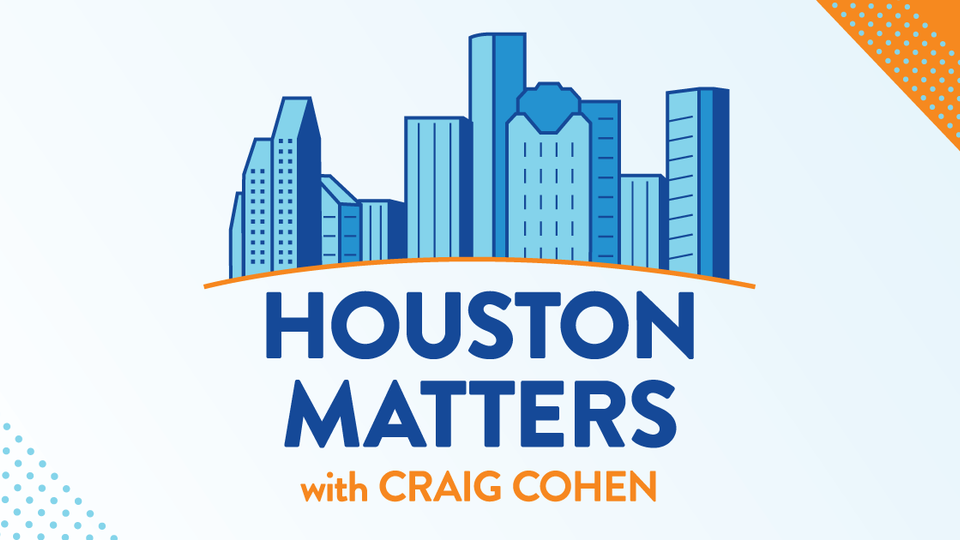
Rice University experts available to comment on forthcoming U.S. Supreme Court decisions
Connie Porter, associate clinical professor of marketing and senior associate dean for for Diversity, Equity and Inclusion at Rice Business, is available for comment on U.S. Supreme Court decisions involving affirmative action, student loan relief, and more.


As the U.S. Supreme Court prepares to make decisions on cases involving affirmative action, student loan relief and more, Rice University experts are available for comment.
With a ruling on affirmative action expected soon, Connie Porter, senior associate dean for the Rice Business Office for Diversity, Equity and Inclusion and associate clinical professor of marketing at Rice’s Jones Graduate School of Business, is available to speak to the media about the importance of diversity initiatives in higher education.
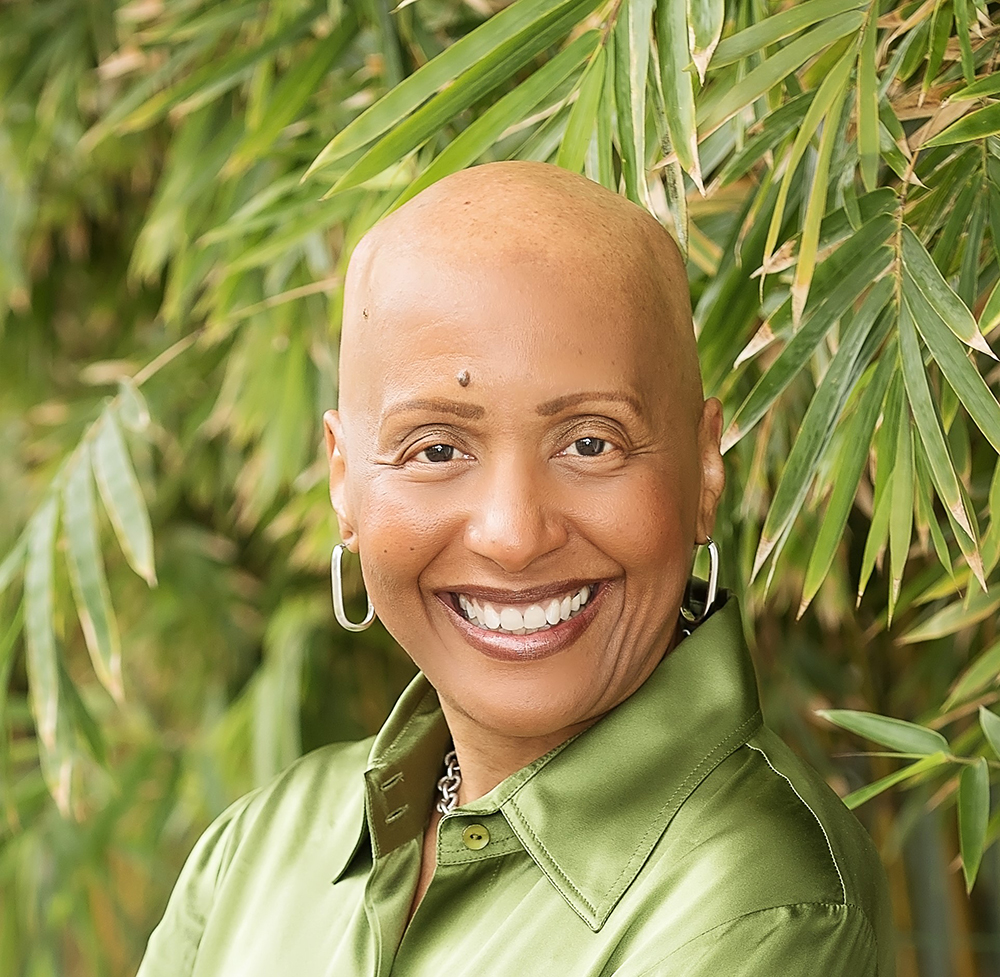
“A Supreme Court ban on affirmative action would create significant challenges for higher ed leaders who strive to create and sustain a diverse campus community,” she said. “Higher ed leaders will need to remain courageously and creatively resolute in their pursuit to leverage diversity as a source of innovation, transformation and advantage – not only for their institutions but also for the local and global communities to which their faculty, staff, students and alumni are connected personally and professionally. Following the law of the land is essential, but so is having an unwavering commitment to the challenging work that remains to be done. The most effective leaders know how to adapt to changing circumstances to achieve important goals.”
Three Rice economists can discuss the forthcoming decision on student loan relief.
John Diamond is the director of the Baker Institute for Public Policy’s Center for Public Finance, the Edward A. and Hermena Hancock Kelly Fellow in Public Finance and an adjunct professor of economics.
“Allowing the Biden student loan debt forgiveness program to go forward would increase the debt by $600 billion dollars, increase inflation and benefit the top 60 percent of the income distribution much more than the bottom 30 percent,” he said. “It's a poorly targeted and conceived policy.””
Zach Bethune, an associate professor of economics in Rice’s School of Social Sciences, specializes in macroeconomics and finance. He said that student loans are a sizable source of indebtedness in U.S. households, particularly among young adults.
“There are $1.6 trillion student loans outstanding, over half owed by borrowers under the age of 40,” he said. “The Federal Reserve Bank of New York estimated the White House’s plan would cancel $441 billion in federal student loans – about 31% of the total outstanding federal student loan balance and 28% of all student loans. Given the plan’s income caps, student debt cancellation would disproportionately benefit lower- to middle-income households with student loans.”
However, he noted that student loan borrowers are much less likely to be lower income in the first place, so the plan overall would predominantly affect middle to middle-high income/wealth households. In terms of macroeconomic consequences, Bethune said a negative ruling by the court would put a damper on household spending, as higher levels of debt tend to reduce aggregate demand. On the other hand, he said a positive ruling would likely increase demand as well as inflationary pressures in the short run.
“The $441 billion relief package is approximately 36% of the current federal deficit, so the plan would represent a large, unbacked fiscal transfer,” he said. “This would have immediate effects on the market’s anticipation of future interest rate increases by the Fed given new inflationary pressures.”
James DeNicco, senior lecturer and director of the Principles of Economics Program in Rice’s School of Social Sciences, said upholding the loan forgiveness raises questions of fairness.
“There are going to be tens of millions of people who either saved for college, took out loans and already repaid them or decided to forgo college altogether because of the costs,” he said. “These individuals will now have to help foot the bill for others who made the conscious choice to take out student loans to earn a college degree and who in many cases are going to have higher earning potential throughout their lifetimes.”
He also noted that moving forward with the plan will exacerbate already unsustainable debts and deficits and potentially create a moral hazard that leads to higher education costs and more cumbersome student loan debt in the future.
“How will this change peoples’ behavior going forward? Are people now going to be more willing to take on cumbersome debt in the future to go to college thinking they will eventually receive government loan forgiveness?” he said. “Will universities try to take advantage of this by raising tuition and making a college education even more expensive?”
Paul Brace, the Clarence L. Carter Professor Emeritus in Rice’s Department of Political Science, is an expert on judicial decision making. He can discuss forthcoming decisions on student loans, affirmative action, gay rights and more.
To schedule an interview with one of these experts, contact Amy McCaig, senior media relations specialist at Rice, at 713-348-6777 or Avery Ruxer Franklin, media relations specialist, at 713-348-6327.
You May Also Like

Rice University’s Jesse H. Jones Graduate School of Business today announced the launch of its Graduate Certificate in Healthcare Management program, a 10-month, credit-bearing professional credential designed for current and aspiring leaders seeking deep expertise in the business of healthcare.
Supreme Court Strikes Down Affirmative Action In Higher Education Admissions
The high court on Thursday ruled against Harvard & UNC, effectively ending race-based admissions to colleges and universities in the U.S. Rice Business Dean Peter Rodriguez is quoted: “Having students from a variety of backgrounds enriches the cohort’s learning experience and reflects our community, state and national diversity.”

Houston-founded e-commerce unicorn raises $60M series C to support growth, international expansion
Cart.com, which was co-founded by Rice Business alumnus Omair Tariq, closed its $60 million series C equity funding round with a $1.2 billion valuation. According to a news announcement from the company, Cart.com will use the funding for international expansion, continued product development, and to meet increased client demand.

Navigating corporate challenge of genuinely supporting social causes, per Rice research
How do companies appear to consumers when they express support for social causes? Rice Business Professor Minjae Kim examines the circumstances that lead the public to perceive do-gooders as model citizens or imposters.

An Inside Look at a Dog-Lover's Dream Internship
Meet Alex Post, Full-Time MBA '24 and learn how she landed an internship with Chewy, the renowned online pet retailer.
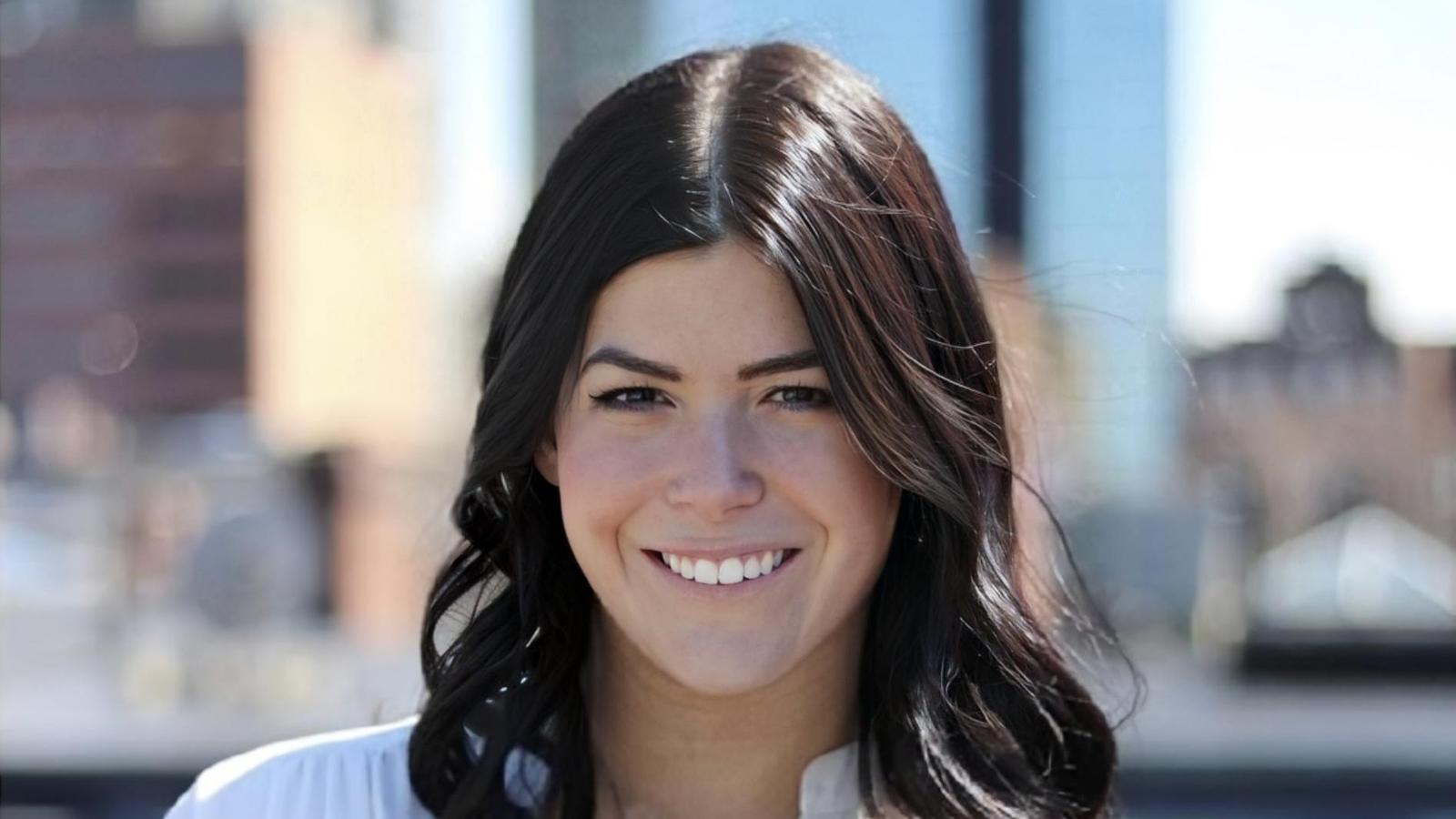
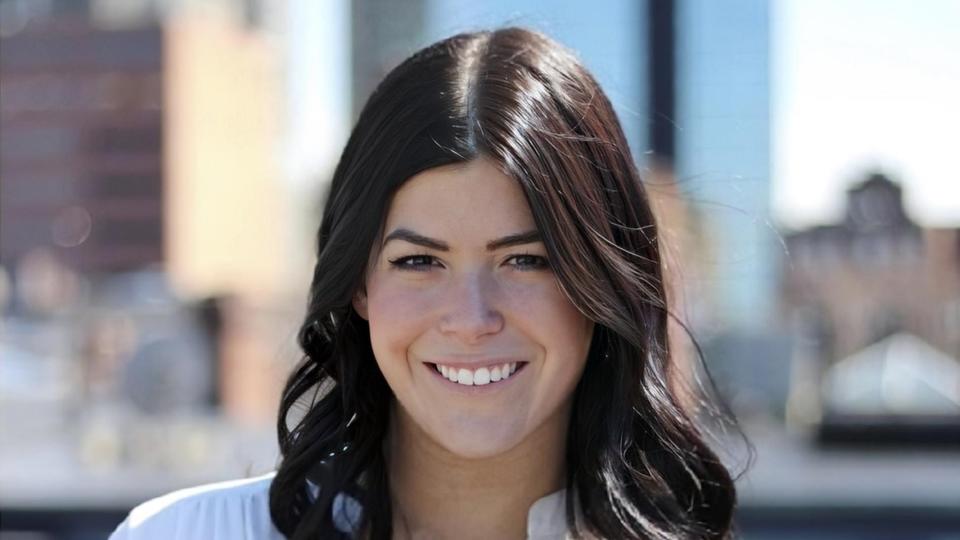
Meet Alex Post, Full-Time MBA '24
MBA Internship: Chewy
Internship Location: Plantation, Florida
Position Before MBA: CEO and Founder of Brightbar in Boston, MA
How did you secure your internship?
I saw the posting for Chewy on Owl Careers and applied directly through the Chewy website in October 2022.
What is your role and responsibilities during the internship?
My role is an MBA consultant, and I will be working in merchandising. I have not been told yet what I will be doing, specifically. I know I will be working with different departments and will be assigned a project once I start in the beginning of June.
What department is your internship with?
Merchandising
How did your MBA coursework prepare you for this internship?
My MBA coursework helped prepare me to work in team environments and understand overall company strategy within a large corporation.
How does the internship align with your career goals?
My post-MBA goal is to work for a CPG company, so Chewy aligns perfectly with this goal. They were one of the fastest growing CPG firms in 2022.
How do you think the internship will help with your MBA studies or your future career?
The internship will give me experience working within a CPG firm and help launch my career. I am passionate about working with products and look forward to seeing strategy inside a company I am passionate about.
What is your favorite part of your internship experience?
I’m excited to be in an office where I am surrounded by dogs all day!
Interested in Rice Business?
Houston innovators recognized at annual regional entrepreneur competition
Rice MBA Omair Tariq, co-founder and CEO of Cart.com, has been named one of eleven regional winners in the Entrepreneur Of The Year program, run by professional services firm EY.

Giving Entrepreneurs the Tools to Change the World feat. Hesam Panahi, Taylor Anne Adams ’23, and Delaney Berman ’22
Season 3, Episode 19
Tune into another live recording of our podcast! Maya Pomroy ’22 (host) was joined by Hesam Panahi (director of strategic initiatives and programs at the Liu Idea Lab), Taylor Anne Adams ’23 (co-founder of a sports tech VC fund) and Delaney Berman ’22 (founder and CEO of Berman Foods).
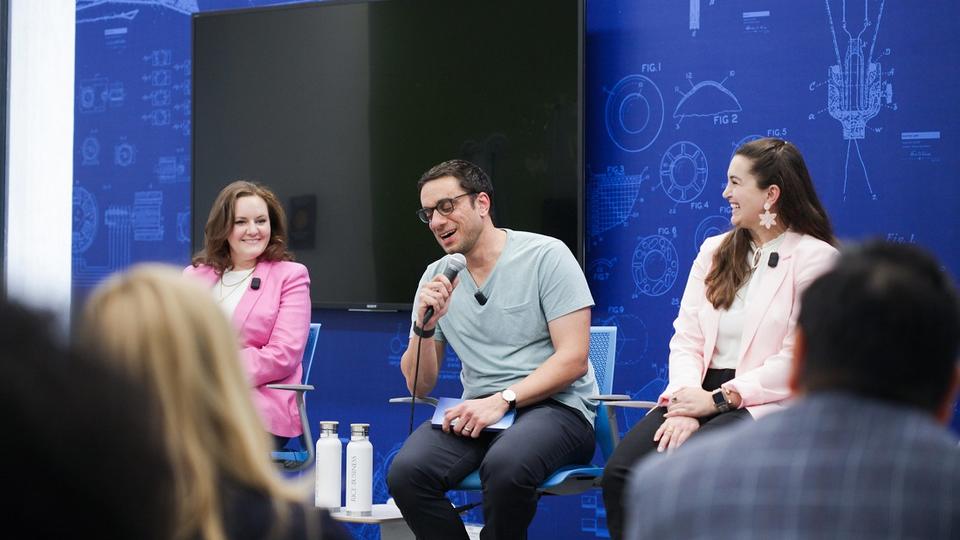
Owl Have You Know
Season 3, Episode 19
Tune into the latest live recording of Owl Have You Know! In April, host Maya Pomroy ’22 was joined by Hesam Panahi, director of strategic initiatives and programs at the Liu Idea Lab, Taylor Anne Adams ’23, co-founder of The Collectiv, a sports tech VC fund, and Delaney Berman ’22, founder and CEO of Berman Foods. Hear about their inspiring career journeys and how the Liu Idea Lab supported their venture launches. The trio also gave advice to new entrepreneurs and discussed what makes Houston's startup culture so unique.
Watch
Listen
Subscribe to Owl Have You Know on Apple Podcasts, Spotify, Youtube or wherever you find your favorite podcasts.
Episode Transcript
-
[00:00] Intro: Welcome to Owl Have You Know, a podcast from Rice Business. This episode is part of our Flight Path Series, where guests share their career journeys and stories of the Rice connections that got them where they are.
[00:12] Maya: Welcome to Owl Have You Know, a podcast from Rice Business. I'm your host, Maya Pomroy. Our guests today are Dr. Hesam Panahi, who's the Director of the Strategic Initiatives here at the Liu Idea Lab for Innovation & Entrepreneurship, and two innovators that he helped inspire and develop, who come from very, very different backgrounds and from very different industries, Delaney Berman from Berman Foods and Taylor Anne Adams from The Collective.
So, thank you so much for joining us today. So, we talk about entrepreneurship at Rice Business all the time. I mean, this is the place to be. It's the number one graduate entrepreneurship school in the nation, and we have a phenomenal ecosystem that cultivates and nurtures innovators. But what does it take to be an entrepreneur, right? What's that secret sauce? So, today, we're going to talk about entrepreneurship and what it takes to get on that rollercoaster ride of ups and downs, and lefts and rights, and twists and turns, and, you know, the occasional screams for dear life, yeah?
But if you're brave enough and strong enough and believe enough in that idea of starting something new, of doing something that nobody else is doing, of really changing not only your own life but the lives of so many, well, then that rollercoaster ride, it's worth it. So, where does it start? Where does innovation begin? Well, you're in the room where it happens, right? It happens here at the Liu Idea Lab, and the person that's in the room where it happens is Hesam, so we're going to start with you, Hesam.
So, let's talk about your background. So, you are born and raised in Houston, and your parents, who are right here in the audience, are both entrepreneurs, and you went into university to study Management Information Systems, and at some point, you had a pivot and decided that you wanted to enter the world of academia and cultivate innovators and entrepreneurs, and then you landed here at Lilie. So, tell me about your journey, and your story, and how it all began.
[02:53] Hesam: So, I'm probably here, I would say, by accident. I never intended to pursue academia when I was going to college in undergrad. I was actually wanted to be a software developer. And so, I spent a lot of my time, my free time, in front of the computer. My parents were fortunate enough to buy me a computer when I was, like, eight years old, and back then I'm a little old. So, back then it was, it was really nice to be able to just, like, go and, like, tinker.
And so, that, kind of, carried through to college. And when I graduated in undergrad, a professor came up to me and basically said like, "You know, have you thought about joining the PhD program?" And I was like, "Not really. I don't really know what I'm planning on doing when I graduate." And so, I stuck around and did that for a few years. Meanwhile, I was working on startups. I was working with some co-founders on a few different ideas.
And then as I was nearing the end of my graduating period in, sort of, the PhD, I really came to this point where I was like, "I don't want to do... I don't want to go into academia." And the reason for that was that much of what you do as an academic is you do really meaningful research, but the time with which you do something versus when you see it actually come into fruition takes a very long time, right?
And so, I guess I have a short attention span and I was looking for something that was a little quicker. And so, I actually ended up graduating and starting a consulting company, right? And so, I was building mobile applications and web applications for people. Before that, you know, while I was in grad school, I was the CTO of a startup as well and helped build all the technical infrastructure for that.
And, you know, when I graduated and I started working on a consulting company for a couple of years, that same professor, seven years later, comes back to me and says, "Hey, by the way," like, "Do you want to teach a class at U of H?" which is where I graduated from, and I said, "Sure. I'll come and teach a class on software development." And as I was sitting there in these classes where people were building things, I noticed that there were so many opportunities for people to actually move forward, to actually take these ideas and bring them to impact.
But there was no infrastructure for that to happen. You know, U of H, at the time, had the number one undergraduate entrepreneurship program in the country, still does, but that program really was designed at its early stages to support the 40 entrepreneurs that raised their hand and said, "I want to pursue business. I want to pursue entrepreneurship," and it didn't necessarily do as much to support the other 39,960 people that were accruing to U of H, and we're necessarily going on about that path.
And, you know, both of my parents were entrepreneurs, and I think that left an impact on me in a sense that it made it seem much more accessible and I wanted to make it more accessible to other people as well. And so, I started this entrepreneurship program at U of H that then turned into a startup accelerator program that, kind of, supports entrepreneurs.
Fast forward, you know, three years, four years later, Yael Hochberg, who is the head of entrepreneurship here at Rice, reached out to me and said, "Oh, well, you know, we have this really great number one graduate entrepreneurship program and we're thinking of expanding that beyond just the business school. We're thinking about figuring out how we can make a bigger impact across campus."
And so, Lilie, the space, and the program, the courses, the co-curriculars, everything, kind of, came to fruition as a result of Frank Liu donating a significant amount of money back to Rice to start this program. And Frank actually launched his own company, Lovett, in those dorms right there, the UC, Lovett. And so, having him come back and supporting that to launch this was really pivotal.
And since then, I've had the pleasure of, sort of, working with some really incredible people. But yeah, it was all by accident, right? Like, if you had asked me 10 years ago if I would be sitting here today at Rice helping people with entrepreneurship, it probably was not in my life plan or my career goals, but I just, kind of, accidentally fell into it and just really saw an opportunity to help people, kind of, find their way.
[06:51] Maya: So, tell me about how the Liu Idea Lab fits into the ecosystem of Rice University.
[06:59] Hesam: Yeah, so, at Rice, you have, obviously, the different schools for the different disciplines, right? And you have the School of Business and, generally speaking, Lilie is the hub and the center for everything entrepreneurship and innovation at Rice within the university.
So, whether it's an undergraduate student that has a really interesting idea that they want to pursue, whether it's a PhD student that's commercializing a technology, whether it's an MBA that's been working on a venture or has a passion that they want to pursue, like, we are that place with which they take classes, they get access to resources, and essentially, our job is to open up doors for them and provide them the pathways to progress, right?
And so, we have over 1,600 students that take our classes every year. We have a competition that we run that is a campus-wide venture competition that is happening at the end of this month where we are handing out over $100,000 in equity-free funding to one of five top finalist teams over 114 teams that applied to that. We do work around trying to commercialize research at the university.
We buy out graduate students' times and have them come here actually with us and spend time trying to figure out how to commercialize their ventures. And we do a lot of stuff for alumni as well. So, we have brown tables where alumni, entrepreneurs, people that are interested in entrepreneurship and might not even actually be working on something, can come here, can come back to campus, have that support network, have that community. Because at the end of the day, when you decide to pursue this path, it can sometimes be pretty lonely, right?
And so, by having that support network and having that community is really critical. I always say, especially to the undergrads, that, you know, when you walk down these sidewalks, right? Someone might be wearing a Brown College shirt, or a Wiess College shirt, or whatever sort of residential college they're a part of, or you might recognize them from one of your classes, but it's really hard to know who is actually an entrepreneur, who's actually interested in entrepreneurship.
And so, what this space, this physical space is designed to do is to be that hub for that as well, right? So, it's not just the class, it's not just the co-curriculars, it's all of that infrastructure that gives people the time and space to explore this.
[08:50] Maya: Awesome. So, let's turn to you two innovators who has... You took Hassan's class, the very first class is the New Enterprise, right? I took that class, not with you because, you know, your class is Phillip super-fast, but I did take that class. Let's start with you, Taylor Anne. Well, first of all, let's talk about her for one second. Like, this woman has literally done everything under the sun. Okay, so, she started off born and raised in Houston, went to Wake Forest. You were a theater major, right? Like...
[09:30] Taylor Anne: Kind of, yes. Communications Theater. Yeah.
[09:31] Maya: Communications Theater. You know, really pivoted many, many times, you were part of a startup in Mexico after you decide for people that made... women that were making soaps in Mexico. But before that, she was working in the movie industry and helping influencers, and she's like, "Yeah, that's not what I want to do ever." And so, and so, so, tell me what led you to VC, because that's ultimately what you're doing now.
[10:07] Taylor Anne: Absolutely. Well, thank you for that introduction. So, you know, I came to Rice knowing that I wanted to go into venture capital. I don't have a traditional business background and I knew that I really needed to get some of those hard skills that are necessary for that industry. So, it was not my first experience. New Enterprise was not my first experience in entrepreneurship. I'd had a company before.
But I will say that it is the most valuable class I've taken at Rice Business because it makes you do the work for... Everything you learn in Rice Business comes to fruition in New Enterprise and you have to actually execute it and explain it to people. And so, I think that was absolutely, you know, a pivotal moment in my career as an MBA student and moving into venture capital to really help me understand entrepreneurs and that journey specifically.
Yes, I had done it before, but I didn't do it well, hence the reason that's no longer a company. But yeah. So, I would say that, yeah, New Enterprise was absolutely pivotal. You absolutely do. They stick with you a little bit more. Yeah. So, again, I came in knowing I wanted to be in VC and that was primarily because I'd been working with startups before coming to Rice at a local co-working space here in Houston, and recognized that the biggest challenge that founders have is access to capital.
It's hard to find people to invest in your ideas and in you as an individual. And I also noticed that there were not a lot of women writing those checks and I wanted to be someone who could make a difference in entrepreneurs' lives, who in turn, as you said at the beginning, you know, will change other people's lives. So, I'm very bullish about entrepreneurship and about entrepreneurs in general. I believe they have the capacity to change the world, and given the right tools and resources, they can and will. So, I want to be one of those tools and resources.
[11:58] Maya: So, what are you doing now? I know you're in stealth mode, but we can talk a little bit about it?
[12:03] Taylor Anne: Yeah, we can talk a little bit about it for sure. So, I'm a co-founder of a venture capital fund that's going to be based here in Houston, or is based here in Houston. We are investing in sports tech and entertainment. So, as mentioned previously, I have an entertainment background and my co-founders have a sports management background.
And I also helped start an eSports company during COVID, so have a little bit of that gaming experience as well. So, we're going to be investing in founders across the United States from series A and B, writing smaller checks, and following on to other rounds, but primarily, in my focus, specifically, is on female founders in the space.
[12:45] Maya: And so, part of what the Collective will do is appropriate a certain number or amount to female founders.
[12:53] Taylor Anne: Exactly, yeah. So, that's my, I mean, that's my passion and my focus. Especially in the sports and entertainment industry, women are often very overlooked. So, it's a nice, it's a nice, kind of, way to weed through a lot of the things that are out there and get some people's voices heard that typically aren't.
[13:13] Maya: Well, and also being overlooked in terms of a VC-
[13:17] Taylor Anne: Oh, in general.
[13:18] Maya: ...and sports tech. Like-
[13:20] Taylor Anne: Yes.
[13:20] Maya: ...those are male-dominated industries, or have been in the past.
[13:24] Taylor Anne: Yes.
[13:24] Maya: There's always, there's always time to change those things, which is what you're doing, which is incredible. But how have you overcome that, where folks are like, "Oh, okay, well, what is it that you think you know?" Right?
[13:37] Taylor Anne: Absolutely. And I don't think that's, you know, only limited to women. I think that happens a lot with emerging managers. Like, how can I trust you with this money to invest in the right companies? And so, that is a question we get asked frequently. And a lot of it has to... You know, I've invested other people's money before and I've done some of my own investing, but a lot of those companies are super early, so it's not like you've seen them.
It's not, you know, Twitter and it's not Facebook, or Meta, sorry. So, a lot of it is just trying to build the trust with individuals and let them know that, you know, I'm being communicative with them and being honest with them. And that's a big, a big piece of the puzzle with my co-founders as well. I'm lucky enough to have some great co-founders who are super supportive of me.
And while I'm the only woman on the team, it is a really nice environment that enables me to be a little uncomfortable at times but also know that I have the support there. So, the question comes up a lot, like, why you and why now? And you just, kind of, have to go at it with unbridled enthusiasm and just make sure that you can convince them.
[14:45] Maya: And speaking of timing, whether people want to acknowledge that we're in an economic downturn or not, it's more challenging now to raise venture funds, you know, and when I was in financing the startup with Blair Garrou, it was about a year and a half ago, and he is like, "This is going to end," like, "There's going to be a stop to this."
And so, I remember those words profoundly. So, how do you deal with something like that? And how do you convince people where, "You know what? We're not going to put your money into fixed income where you have an automatic return, but how about you take a chance on me?"
[15:18] Taylor Anne: Yeah. And that is something that we've encountered and obviously this is a market correction, so it was bound to happen as Blair predicted. And so, a lot of it is looking at the market in and of itself. And these are skills that I learned at Rice and skills that I learned in New Enterprise. And understanding that the sports and entertainment market is actually very recession-proof. If you look at the changes of money and, like, different stock prices and you look at the valuation of different sports franchises, it's actually outpaces the S&P 500 exponentially. So, sports is not going away.
[15:50] Maya: No.
[15:50] Taylor Anne: And because of COVID, it has actually accelerated the technology within the sports ecosystem. And so, there's so much room for innovation and opportunity. We partner with the Houston Rockets and they, you know, have a director of innovation whose sole job is to find technology that could benefit the organization.
And that ranges from cybersecurity to protect the stadiums to, you know, player data capture and wearables. So, the time is great for sports and it's also great to be investing because companies are at a discount when there's a market like this. So, yes, the raise is a little bit tougher, but you just got to, you got to have the conviction.
[16:41] Maya: Absolutely, with anything that you do.
[16:42] Taylor Anne: Yes.
[16:43] Maya: So, Delaney, let's turn to you because you're not raising any funds, right? Okay, so, tell me about your background. So, you were raised vegetarian and vegan and really saw a problem in the market and you just went after it. And I can't wait, you guys get a treat at the end of this, but I'm going to let her tell her innovator story of what she's created and working with your brother, by the way.
[17:08] Delaney: Yes. Yeah. Yep. So, yeah, I'm like both of them in that I never would've predicted I'd be here. I plan on going to law school for most of my childhood and schooling years. I went to work at a big law firm in DC after undergrad as a paralegal in litigation and did not love it. Vividly remember calling my mom, like, crying in the middle of the night on trial or, you know, on an offsite trial, and I was like, "I got to do something else."
So, quit that job, moved to LA with very little planned, and started working as a nanny and personal chef there. I had loved food. Like you said, grew up veg and vegan and had some experience in high school and college working with the dining halls to bring vegan options to campus. So, I knew that I wanted to work in plant-based food at that point. I'd been watching all this growth happen in some really cool startups and just seeing how, you know, different veggie burgers became from, like, the late '90s to, you know, 2018, and realized that that wasn't happening with cheese, right?
So, why cheese? Yeah. So, there's some science stuff that makes it really hard to replicate what dairy does to make cheese happen. Some proteins, some sugars that are, yeah, just perfect for that mission. They're also really addictive, so we get really hooked on that flavor in a way that doesn't happen with, you know, a lot of other food. So, it just, yeah, it wasn't a focus in the space. I think burgers and meat, kind of, were a bigger focus.
People don't necessarily tie the ethical implications and environmental implications of dairy and animal agriculture in the way that they do to meat. So, I think that was a bit of why there were fewer innovators in that space. But just on a personal basis, it was always the thing I missed most once I went vegan, kept waiting, waiting, waiting for good products to come out. They weren't coming out. I was, like I said, personal cheffing at that time and, you know, my clients wanted good cheese and weren't really any options.
And so, I knew that I needed to go get an MBA, like Taylor Anne, because I didn't study business at all. I knew nothing about business, knew I wanted to get into entrepreneurship, realized that cheese was a wide-open space, but still, at that point, planned on just going to work for another startup after B-School, yeah, and somehow ended up here instead.
[20:04] Maya: Well, that's good, that's good for us. You ended up in the best place that you could have, you know? But that's also something that I see a thread, a similar thread, with entrepreneurs is there's a problem and they, kind of, wait for somebody to solve the problem and nobody's solving the problem, so they're going to solve the problem. And those are usually the most successful ones.
So, you know, in terms of... I mean, it's a billion-dollar business, the food industry, right? And more and more people are switching to becoming vegetarian and becoming vegan and really being very health conscious and aware of what they're putting into their bodies. So, what year was that, that you decided that this was what you wanted to do? So, law school, let's go back a little bit.
[20:52] Delaney: Okay. So, graduated undergrad in 2016, worked in law until 2018, moved to LA to get on-the-ground food experience. That was, kind of, where vegan stuff was happening in LA. It wasn't really happening as much anywhere else yet. Maybe New York. I was very much debating between New York and LA, put up a poll on my Instagram, and went with the results.
[21:16] Maya: That's amazing.
[21:18] Delaney: They thought that was just a story. There was a little more planning that went into it, but not much.
[21:22] Maya: That's like how I'm going to make all of my big decisions in my life as well. I'm going to put up a poll and see what people say, and then I'm just... Yeah.
[21:28] Delaney: I have experiences in both places. And I was like, New York's really cold, a little more expensive. LA, at least, I've got the sun. I was pretty done with snow by that point. Yeah, so, and knew I wanted to go to business school at that point to get into entrepreneurship. I thought it would be too big a leap on my own. So, working as a personal chef and nanny afforded me the time to study for the GMAT.
So, that was 2018. I was applying 2019 and then COVID happened. Yay, COVID happened. Luckily, I was already in, had committed to Rice because I applied round one. I actually came to admit weekend in I think January, where I met Sophie Randolph, who was one of the other Rice founders. And then COVID happened in March. Yeah, so, that was a sort of timeline.
[22:15] Maya: Right. And we're all still here.
[22:16] Delaney: We're all still here. Yep. I was not sure if this goal was going to happen at that point for our class or if we were going to get delayed or what, but. So, came in knowing that this was a problem space I was interested in, but didn't really honestly think that I could do much for it on my own.
But at some point, had the realization that there were a lot of startups with money who hadn't made it happen yet, a lot of big food companies who hadn't had, you know, made it happen yet. Nestlé hadn't fixed the problem no one like that had done it. So, I thought maybe I'd actually have a better shot, like, on my own, in my kitchen if I just played around and did a lot of research. Yeah.
[22:57] Maya: And you haven't had big raises, you haven't had to raise a lot of fun. So-
[23:01] Delaney: Yes.
[23:01] Maya: ...tell me how this is a bootstrap? Like, how'd you, how'd you do it?
[23:05] Delaney: Yeah, so, some combination. We're really lucky that we got some friends and family money, a little bit, just so we have some cash on hand. Thought about raising more last summer and decided not to go that route.
[23:24] Maya: Why?
[23:25] Delaney: Why? I thought it would tie us to a certain growth trajectory that maybe wouldn't be sustainable, and I wanted to make sure that we could lead the way on what was most important to us and what I felt was most important to our business, which is making really great products for everyone, yeah, in a way that's nourishing to our bodies, sustainable, customer-focused. And my brother and I both still work part-time for other businesses, which is part of the reason we can do this, so.
[23:57] Maya: And your brother, so, hot sauces, right?
[23:59] Delaney: Yeah. So, simultaneously, all this was happening. My brother was a brewer in San Diego. He's always loved all things fermentation. He's, like, does sourdough, he was roasting coffee, started as a home brewer, then moved into it professionally, worked at some really cool breweries on the West Coast, and started, at some point, doing fermented hot sauces just for fun, and then giving them out to, you know, friends and family and getting really good feedback. So, he was like, "Okay, maybe I'll start selling them." He came up with this really cool brand called Prophecy. It's this whole one-eyed owl thing, because this owl literally landed, like, on his balcony with one eye.
[24:38] Maya: Oh, another owl?
[24:39] Delaney: Yeah, another owl.
[24:40] Maya: Oh, okay. There's a, there's a trend here.
[24:42] Delaney: Yeah. And he looked it up. And so, yeah, Prophecy Hot Sauce was the brand, and that, kind of, came out of that experience. He was looking up, like, the omens. Yeah, but they're all fermented, and we started talking probably about a year into B-School. I was working on cheese at that point, had been through New Enterprise, was incubating at Mercury, and some stuff was happening on the craft-beer scene where it was becoming harder and harder to make it as a craft brewery, especially on the West Coast where there's a lot of competition.
And we started talking about combining forces because he had the more technical fermentation background that I didn't have at all. So, yeah, we just kept having phone calls and talking it through and one day, he was like, "Okay, maybe I'll come in about a year." And then right before graduation, he was like, "I think I could come this fall." So, that timeline moved up quite a bit. And yeah, he just quit his job, moved to Houston.
[25:34] Maya: So, you guys were close growing up, I'm assuming?
[25:37] Delaney: Yeah, we're definitely close. We're the only two. But I went to boarding school at 15, so, and then school on the East Coast, lived on the East Coast, so we had lived apart for a while, you know. What is that? 12 years? Something like that.
[25:56] Maya: So, Hesam. So, when you meet these incredible entrepreneurs and innovators and they say, "Hey, I've got this great idea for cheese," right? And then, so, what is your process in terms of evaluating ideas? I mean, listen, I have ideas all day long, every day, and so, like, what's the, what's the litmus test, right?
[26:25] Hesam: Well, first of all, I've had the cheese and it's incredible, so it was just...
[26:28] Maya: And we're all going to have the cheese.
[26:29] Hesam: So, that is great. You're in for a treat. Actually, I was thrilled when Delaney showed up with this idea of, you know, wanting to do this plant-based cheese because I think it made a lot of sense, right? Like, that was her background, that was her own personal experiences, that was something she knew really, really well. It was, you know, just something that was inherently her interest.
And I think that when we look at people's ideas, I mean, I hear the same things. I hear many of the same ideas over and over again. And I really try to find a way to map whatever that idea is to a problem that needs to be solved, and that problem to a personal interest or curiosity that that person actually has, right? So, certainly, there are people out there that are thinking about entrepreneurship as a way to just make money as quickly as possible.
And I'm here to tell you that that's, like, actually not typically what ends up happening, right? But more importantly, it's, you know, having that interest and that curiosity that's going to drive you when times are rough, when there are, you know, obstacles you're going to encounter, when there are challenges that you face. And so, what I'm always asking that person, whenever they're talking about their ideas, to try to get a sense of, like, the origin story, right?
And what is it about them that really positions them to want to pursue this, in that rollercoaster, right? Like, what's going to keep them going? And the other part of it is really just trying to validate and just go out and understand how big of a problem is this for everyone else out there because, you know, there might be a problem that I experienced, but am I really seeing that out there?
And so, we encourage people to, kind of, get out of their heads, honestly because so much of that time when you have an idea is just spent analyzing it and analyzing it, analyzing it, and thinking about, "What if I did this? What if I did that? What if I did this?" And it's just all about, like, breaking it down, thinking about what's the actionable next step that I can take today with no money and with no resources to try to further understand whether or not this is worth pursuing.
And I think a lot of what we have to do here at Lilie is to try to clear that pathway for founders to, kind of, have the tools and resources at every step of their journey because at the end of the day, you know, you come to a, to a highly-ranked business school like Jones or Rice Business, you come to a highly-ranked university like Rice. You have a lot of options when you graduate, right? And a lot of those options have very clear pathways.
And it's like you want to do investment banking? Here are the seven steps that you need to take in order to do it. It's going to be super competitive, but here are the seven steps. You want to go into consulting? Here are the six steps you needed to do in order to do that.
And so, for us, there's a process we follow, but a lot of it is really just providing that support and just letting people see that there is an endpoint that they can get to, and that even though that path is not linear, even though that path is not immediately clear, even though it's going to have those ups and downs, like, there are ways of measuring your progress that are meaningful, and that's essentially what we try to coach people and support founders through.
[29:28] Maya: So, this is a question for both of you, what has been the most surprising in your entrepreneurship journey? I'll let you start Delaney.
[29:33] Delaney: So, I came to business school to learn finance and accounting and strategy and all these things that are really helpful, and what I'm spending 90% of my days learning right now is content creation because it's super important for CPG brands and I knew nothing about it. So, I'm, like, watching YouTube videos on how to make a reel and trying to build that into my calendar, and it's... yeah. They had no expectation that I would be spending that much time trying to figure out Instagram.
[30:02] Maya: I think you need a new course.
[30:05] Hesam: Uh-huh, it's funny you mentioned that. Actually, I'm just going to give a quick plod for this. This is for freshmen though, so maybe not immediately the audience here. Every freshman of Rice has to take a writing course sometime in their year, in their first year, and so we are doing a course for creators and how to turn their passion into products, and part of that includes things like writing in public, publishing in public, getting that feedback loop started, and trying to grow your... capture the audience's attention. So, it's been the books for the fall.
[30:35] Maya: Excellent. Okay, Taylor Anne.
[30:37] Taylor Anne: So, it's the most surprising thing I've learned in entrepreneurship, is that right?
[30:42] Maya: Yes.
[30:43] Taylor Anne: Okay, okay. I just wanted to clarify the question.
[30:44] Maya: Yes.
[30:45] Taylor Anne: Let's see. I think how much I have to rely on, like, my own self-confidence in order to continue doing things. Like, you can have a million people supporting you, and I give so much credit to the Liu Ideal Lab for that, like, there's so many resources that can help support you, but at the end of the day, it's up to you to continue on the path. No one's going to do it for you.
And then there's no rule book and there's no guidebook, as Hesam was saying earlier, so a lot of it is just, kind of, continuing to try to figure out, like, knowing that I am capable of doing this thing and continuing to follow through with it even on days when it feels like, "What am I doing?" Like, "This is a really bad idea."
[31:35] Maya: It's not. It's a very good idea.
[31:36] Taylor Anne: Yes. No, it is a good idea. Disclaimer, great idea, wonderful market, great opportunity. But sometimes, I think it's hard when you're building something from scratch to remember all of those things when you're doing the day-to-day.
[31:51] Maya: So, let's talk about the Houston ecosystem, right? Because we live in Houston and it really is a fertile ground for entrepreneurs. Tell me about your thoughts about starting something new. And being here in Houston, what are, what are the benefits? What are some of the weaknesses? You know, how could Houston be better equipped to help entrepreneurs here in this city? Because, you know, it was, it was Silicon Valley, and then it was Austin, and then, you know, there's Herzliya in Israel.
I mean, there's these pockets throughout the world that are known for innovation. And Houston's getting there, you know. We've got Greentown Labs, we've got the Energy Trans, I mean, there's Halliburton Labs, there's all sorts of things that are happening here, which is very, very exciting. But how could it be better for all three of you?
[32:52] Taylor Anne: I'm happy to start with this one because I'm extremely bullish on the Houston startup ecosystem. So, I'd been in LA in New York previously and started to, kind of, get into the startup world in LA and it's interesting, and fragmented, and chaotic, and everyone works for Tesla, and then they also have something on the side. It's different here.
[33:08] Maya: Just like Elon.
[33:09] Taylor Anne: Just like Elon, right? You know, Twitter and Tesla. So, I think that the city is doing a really good job and there are private organizations within the city that are stepping up, where I think that Houston needs a little bit more support. I do think it needs a little bit more support from, like, the public sector. There are definitely champions of innovation that exist in Houston.
I mean, there's so much money here. There is so much talent here. We have the Texas Medical Center, we've got Rice, we've got U of H, we've got TSU, we've got St. Thom. I mean, there's so much opportunity here. I think what it's going to take is for people to drop egos and allow for there to be a lot of community building as opposed to trying to win.
[33:56] Maya: Hesam?
[33:57] Hesam: Yeah. So, I think that was great actually. So, I've been a part of this ecosystem now for about 15 years. So, I've seen, kind of, the highs and lows of it. I've seen different iterations of institutions that have tried to centralize and tried to build density because obviously, as many of you know, being in Houston, it's very fragmented. Everyone's, kind of, spread out. And having some sort of nexus or center where that activity can happen is really critical.
And I'm, and I'm confident, I'm confident and I'm bullish just like Taylor Anne is because I think that what we're seeing a lot of now is people are, kind of, waking up to the fact that, you know, we can't rely on energy as our sole source of innovation, we can't rely on healthcare as our sole source of innovation. We have to look elsewhere and try to bring people here to build things. And I think the other part of it that's hopefully going to we'll start to see more, see more of it over the course of the next year is seeing people win, seeing companies exit, and then those people then coming back and feeding into the ecosystem.
If you look at some of the most successful ecosystems, just in the U.S., right? That's where a lot of it has happened. It's entrepreneurs that have made it, that come back, give back, that contribute that are a part of that, sort of, cycle. And so, I'm hopeful that that'll happen soon. And I think, you know, a lot of what the community is doing is trying to create that density and create that interest and create that activity.
And so, I'm pretty excited about it. And I think that Rice is trying to play a pretty big role in that, or at least be very active in it. And so, I think the next few years are going to be really exciting here in Houston. And personally, as someone that's grown up here and lived here all my life, I'm just super excited to see all of this activity and just the growth that we've seen over the last two years. Yeah.
[35:57] Delaney: So, I'm the outsider on this panel. I did not grow up here. And...
[36:01] Maya: That's okay. We'll still, we'll still claim you.
[36:02] Delaney: Okay. That's good. Came for Rice and fully expected to leave Houston at the end of it. I, looking at B-Schools, immediately fell in love with Rice for the entrepreneurship program. But I was like, "I have to live in Houston for two years. I guess we can handle it. We'll just move after." And completely changed my mindset after living here. I love the city so much. But ultimately stayed to build our company here because of Rice, because of Mercury.
I've had all this amazing, wonderful support here, without which I would not be doing this right now. And I wanted to stay close to those connections and for foods specifically. Whole Foods and H E B are both headquartered in Texas. So, in terms of distribution and growth, there's a lot there. I will say the one thing Houston doesn't have it all yet, like, all the CPG companies are in Austin, which, given how much diversity and how much food diversity we have here, is wild because there's a ton of potential, a ton of great food and, like, no CPG companies.
I've met a couple other founders through being in the farmer's markets. But, yeah, we need a lot more infrastructure here. We need good commercial kitchens, which we're really struggling. Like, it's really hard to find a good commercial kitchen space here. Well, somebody needs to come up with that idea. Yeah. If anyone wants to build one, I can tell you exactly what would work.
[37:16] Maya: Yeah. See, that's synergy. Let's call it synergy here. So, can you tell us some of the markets that you're targeting for your products?
[37:28] Delaney: Yeah, so, we developed this in New Enterprise, one of my teammates is here, but our go-to-market strategy was always to start in farmer's markets, which is what we're doing now, get really quick customer feedback, which has allowed us to iterate pretty quickly, test new flavors, test, like, we're trying to figure out how to tell the story that connects the hot sauce and the cheese now that we're doing both and they're, kind of, different brands.
Market, so, starting here, then we'll probably do Austin and Dallas to stay within Houston. And then our goal is to branch out to, sort of, secondary markets that don't have a lot of plant-based foods yet but where I know there's disposable income and interest in eating healthy, eating well. So, places like DC, Atlanta, Boulder, Florida, we're from Florida, so, Tampa and Miami are on the list. Yeah. And we'll just grow out little by little, so long as we can meet-
[38:28] Maya: That's great.
[38:30] Delaney: ...demand. Yeah, that's the plan. We'll see how it goes. But small independent retailers first and then ideally, Whole Foods or H E B within the next year to two years.
[38:40] Maya: That would be incredible. And you'll need to keep us posted on all that. So, Taylor Anne, so, in terms of growth for you, for the Collective, tell me about that. Where do you hope to be next year and five years from now? And what's your, like, pie-in-the-sky, dream?
[39:01] Taylor Anne: Oh, man. I've got a lot of those. So, I'll keep it narrow. But let's see. We've raised to date a little bit under 4 million dollars. It is a 25-million-dollar fund. So, once we hit 5 million, we'll be able to start deploying the capital into startups. I'm meeting with startups every single day, doing all of the due diligence and all of those fun things. So, we have a strong pipeline. But right now, our sole focus is raising this 25-million-dollar fund.
So, in a year, my hope is that it's raised, and then in the next two to three years, we want this first fund to have a little bit of a shorter cycle so that we can get some exits quicker with less ownership just to, kind of, prove that we can do it, to your point earlier, right? So, I imagine that in the next year or two, we'll be raising a second fund, which will hopefully be at least two times bigger. So, at least 50 to 100 million dollars. And yeah, so, that's, kind of, the pie in the sky for me, and I'm keeping my vision to five years right now because if I go beyond that, it just gets a little scary.
[40:11] Maya: So, how do you, how do you deal with the VC competition here in Houston? Because there's a bit of that.
[40:12] Taylor Anne: Yeah, absolutely. So, there is definitely. There's about 12 or 13 VCs here in Houston. We all, kind of, invest in different things for the most part. So, it's a pretty tight-knit community. Everyone really knows each other in VC and for the most part, venture capital is such a network-based industry at its core. So, a lot of times we're sharing deals, or we are co-investing with one another, or sending... you know.
Sometimes it's not a fit for us, but it might be a really good fit for somebody else. So, we're like, "Hey, we talked to this founder. We highly recommend you meet with them." So, it really is a lot more collaborative than competitive here. The same can definitely not be said for the Valley, obviously, in New York as well, but there is a lot of, a lot of cohesion here.
[40:58] Maya: Okay, so last question before we open it up for our guests to ask you questions. What's the best thing that Hesam taught you? No pressure.
[41:10] Delaney: Talk to customers early and often. Sorry, did I steal yours?
[41:13] Taylor Anne: Yeah, that's a good one.
[41:15] Delaney: Yeah, had we not done that, we wouldn't have figured out how important nutrition was to the people we're trying to sell products to. It has completely shaped our entire strategy. I mean, I obviously always would've wanted our products to be healthy, but I had no idea that it was such a priority within, you know, plant-based cheese and plant-based dairy. So, that was, yeah, transformational.
And I would say to some as a very lofty task of trying to teach MBAs to fail and try and just test and test and test and test because MBAs like things to be in a line and linear and makes sense, and we do case studies with specific answers. And Hesam basically tells you to throw it out the window when you get into this class.
And it's really, really hard to do that when you've been shaped for a semester to think in a certain way. So, I would say that the biggest lesson I've learned and what I continue to use every day, and what I say to founders all the time is just test it, test it. Like, try it, see what happens, and you aren't going to know unless you do that. So, not letting perfect be the enemy of good.
[42:31] Maya: And Hesam, what has been the most powerful thing that you have learned from some of the innovators that have been in your classes?
[42:39] Hesam: I mean, honestly, it's just a, it's just a massive amount of respect for the decision that they make. I think that, like, the more I, the more I see, the more I get the opportunity to interact with founders, the more I am just, like, in awe of their courage and how they take that leap when it is not the obvious path.
And yeah, that, to me, is just learning from that, seeing the way they think through that, seeing how to, you know, instill that sort of... or give them the space to have that confidence to pursue it, has been something that I continuously think about and something I'm still learning how to, like, properly nurture and frame. So, I would say confidence to go into the unknown if... Can't think of a better way to say it.
[43:24] Maya: Lifelong learning.
[43:26] Hesam: Lifelong learning. We'll go with that.
[43:27] Maya: Great. Okay. Well, we'd love to open it up to all of you, for any questions that you have for Hesam, Delaney, and Taylor Anne.
[43:36] Deavia: Hello. Thank you, guys, so much for your time. I'm Deavia. And so, my question is besides investing capital, are there other ways your investors can stay engaged in the growth of your, of your businesses?
[43:49] Taylor Anne: Yes, 100%. So, while I am a venture capitalist, I also don't think that all companies need to raise capital. Like, I think Delaney's decision to not raise capital is very smart, and not all companies need it, obviously. So, I think that the way that you gain investors and advisors, you should send them a weekly e-mail with just updates. And if you're, if you're trying to learn or understand something, just bounce it off of them.
Like, investors should be involved in everything else and not just writing a check. That's my frame of reference and that's the style of venture capital that I do. Not everyone does that. But even if they aren't an investor and you haven't raised money, find those advisors and find people who you can send something to, who can tear it apart, or share it to the right people.
[44:34] Deavia: Yeah, of course.
[44:36] Delaney: Yeah, I mean, I'll echo that since we don't really have investors. Finding advisors, I'm lucky I got connected to another startup, which is who I work for part-time. It's Rice Business-founded called Vegetable and Butcher. They're in DC. They do prepared meal, door-to-door delivery.
[44:54] Maya: Turner Hoff of the Rice. And-
[44:56] Delaney: Turner? Yep.
[44:57] Maya: ...I interviewed him. He's phenomenal.
[44:58] Delaney: Okay. Yep. So, luckily, I get to work...
[45:01] Maya: That's coming up on... I'll have you know because...
[45:03] Delaney: Well, so... Luckily, I get to work with him and see him most days and bounce ideas off of him and learn. They're six years in, so I get to learn a ton from what they're doing. And just talking to friends who are founders or VCs, talking to folks at Mercury who are always exceedingly generous with their time and insights. Yeah, advice is very helpful.
[45:36] Hesam: Yeah. I'll just add one quick thing. And I think that, you know, we have a lot of people to come from the outside into our courses and into our programs and many of them are venture capitalists or investors. They're entrepreneurs or angel investors. They're people from all different backgrounds. And I will say to, like, it's interesting to see how sometimes when you first meet that person, you don't necessarily see what the connection might be with them.
You're like, "Oh, this person's coming into a presentation and giving me feedback," or, "Oh, I met this person at this event," or whenever it might be, and just staying in touch and doing things like those updates, you know, you'd be surprised how many situations I've heard of where people will then reconnect years later and there will be, whether it's investment or some sort of other opportunity, there's some chance for them to work together, right? And so, it's just like, take those relationships seriously, you'll never know when they might be of value again.
[46:32] Maya: Anyone else? Any other questions? Okay, well, we wanted to thank you, all three of you, Hesam, Delaney, and Taylor Anne for being here today, for that. And then if you have enjoyed this taped podcast, please subscribe to Owl Have You Know. I'm not the only one. I also have a co-host who's phenomenal. His name is Scott Gale, and he's not here today because he has to go pick up children.
And now, he'll see it on the recording because I told everybody why he's not here. But anyway, you can subscribe to Apple Podcasts or on Spotify. And we hope to see you at future events. And we hope you had a wonderful evening. I know, I know, I'm sure I did. I hope you guys thought it was less... It wasn't very painful, right? All right. All right, great. Thank you so much.
Thanks for listening. This has been Owl Have You Know, a production of Rice Business. You can find more information about our guests, hosts, and announcements on our website, business.rice.edu. Please subscribe and leave a rating wherever you find your favorite podcasts. We'd love to hear what you think. The hosts of Owl Have You Know are myself, Maya Pomroy, and Scott Gale.
You May Also Like
Find out what it takes to launch a successful startup in Amazon’s new small business podcast
Amazon’s 'This Is Small Business' podcast launched a spinoff miniseries, 'This Is Small Business Next Generation', in partnership with Rice Business. The miniseries is hosted by Andrea Marquez, a future small business owner, and Mitchella Gilbert (“Mitch”), founder of OYA Femtech Apparel and an ex-RBPC competitor, as co-host.
